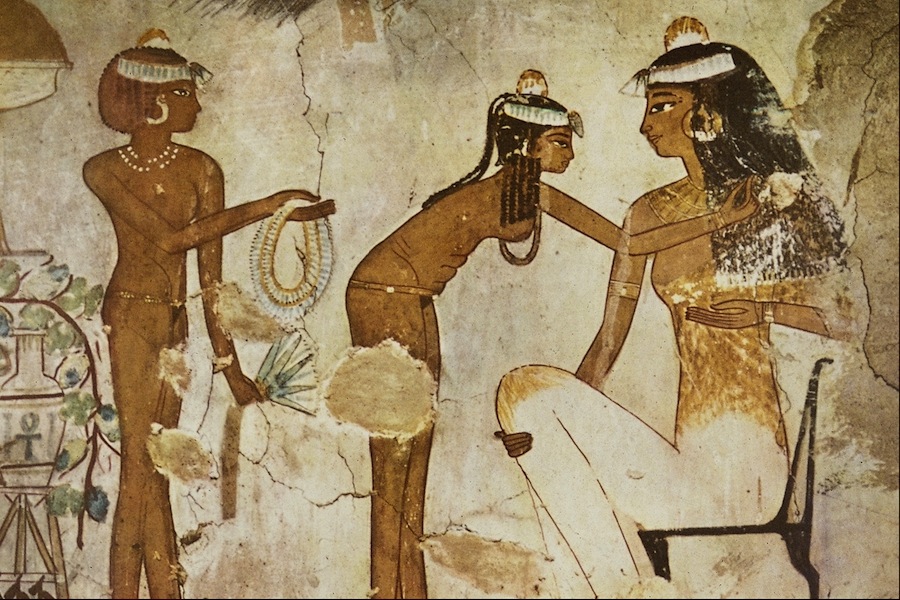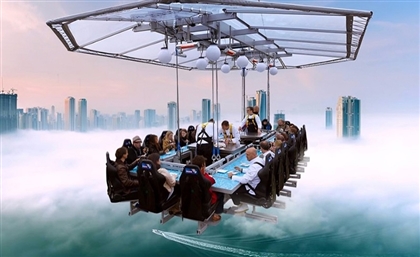A Misplaced Sense of Morality
Someone who calls her driver "Mr." Anam Sufi finds it hard to believe how many Egyptian elite treat the working class. How can something as transient and superficial as money and wealth be behind such societal impudence?

By the time you finish reading what I have to say, you will either be inspired to affect change, or convinced that I belong in a sheep farm in Kazakhstan, sporting a pair of Crocs. I hope the former holds true.
I believe there is something fundamentally wrong with the way societies, particularly the elite, of the developing world aspire to emulate almost all aspects of the West, save for that of appreciating equality… Especially when it comes to monetary discrepancies. I don’t claim to have novel ideas on the matter, but what I hope to accomplish through this article is to underline the widening fissures in an increasingly two-tiered society that has been constructed on both a monetary and psychological level, in the minds of those with money.
Recently I watched Lee Daniel’s The Butler; a film that follows the trials and tribulations of Cecil Gaines, a butler who served at the White House under eight presidential administrations. The film maps the parallel story of the eradication of slavery and the facilitation of equality alongside that of the protagonist’s relationship with his family and country. I won’t delve too deeply into the movie, but what I will say is that it was very successful in generating a sense of empathy and pain in the minds of the audience. We feel for Cecil as his dignity and honour is repeatedly belittled. We scoff at the arrogant attitude of those who try to quell his spirit. But then it occurred to me, that even I was guilty of selective empathy, and what I was jerking tears over were in fact occurrences that still happen almost every day in Cairo.
I have a driver whom I call “Mr. Hassan.” In the three years that I have been in Cairo, never once have I been able to call him by the title of “Mr.” without having one of my friends throw me a quizzical and jocular look. Upon hanging up the phone, the following conversation usually takes place:
“You call your driver Mr.?”
“Yes…”
“Haha, you’re so cute.”
With all due respect to the numerous friends of mine guilty of having asked me this, but how does that make me cute? I fail to see the humor in calling a man of 40+ years, earning an honest living trying to provide for his family, by the respectful title of “Mr.” Yet, this is but the tip of the iceberg in terms of the acute lack of respect shown to household staff and those who work for those who pay. I have had experiences sitting with people I know, where terms like “khawal” and “yabnil kalb” are directed to drivers who forgot to take the dog out. And I can’t help but wonder if such slanderous diction would be used were the driver, Mohammad, a suited white man who went by the name of Mr. Stevens.
Branching away from household politics, one can view the situation on an aggregate scale as well. Kiosk clerks, petrol station workers, bawabs, school guards, the waiters at Tamarai, maids, and gardeners; there is a marked difference in the rhetoric used when speaking to members of society who hold such occupations. What saddens me the most is that I live in a time when respect for old age does little to cap insolence and impertinence. But what baffles me even further is whether something as transient and superficial as money and wealth is behind such societal impudence?
Even now as I sit here, nestled in a small corner of Snug in Maadi, as the waitress bought me my food and asked for my name, she was taken aback when I asked for hers in turn. Perhaps she’s not used to being viewed as anything other than a device to transport plates from the kitchen to the table, but that to me is a clear indication that something somewhere in the chain of human communication has malfunctioned.
You may be thinking that I am going on a tangent about minor episodes that punctuate the daily routine of Cairene life; but I implore you to take a moment to reconsider the implications of such attitudes. We roam in social circles where people don’t hesitate to spend on Crystal (Meth or champagne, pick your poison), all for the sake of fun or forgetting. But perhaps it’s time to take a moment to put your glass, bill, or pipe down, and observe the context you’re in.
I am not saying that it is bad to let loose and it’s bad to party but what I am saying, without a doubt in my mind, is that there is a serious lack of compassion when it comes to those of lesser economic standing than the elite classes. It doesn’t take a Nobel laureate to point out that a little bit of reservation in luxury spending could change the lives of so many who sleep beneath a canopy of open air every night.
But what am I talking about? You already know all this… Just like we already know about the starving children in the horn of Africa, the recent earthquake in Pakistan, the horrendous impact of Fukushima, and all the other harrowing conditions that plague people of the world. We can all agree that it’s truly a tragedy, but perhaps it’s time to trade sympathy for solutions. I could sit here quoting bumper stickers like “a little bit goes a long way,” but fuck that. Maybe that applies insofar as pecuniary aid goes, but a lot more than “a little” is needed in terms of the paradigm shift that is necessary in the psyche of those who feel they are justified in compromising the amount of respect they show their employees – Yes, your maid/driver/bawab/waiter is your employee, nothing less.
Open your minds and you hearts, as well as your wallets.
- Previous Article I Got Banged!
- Next Article Vichi - Making Men More Stylish
























